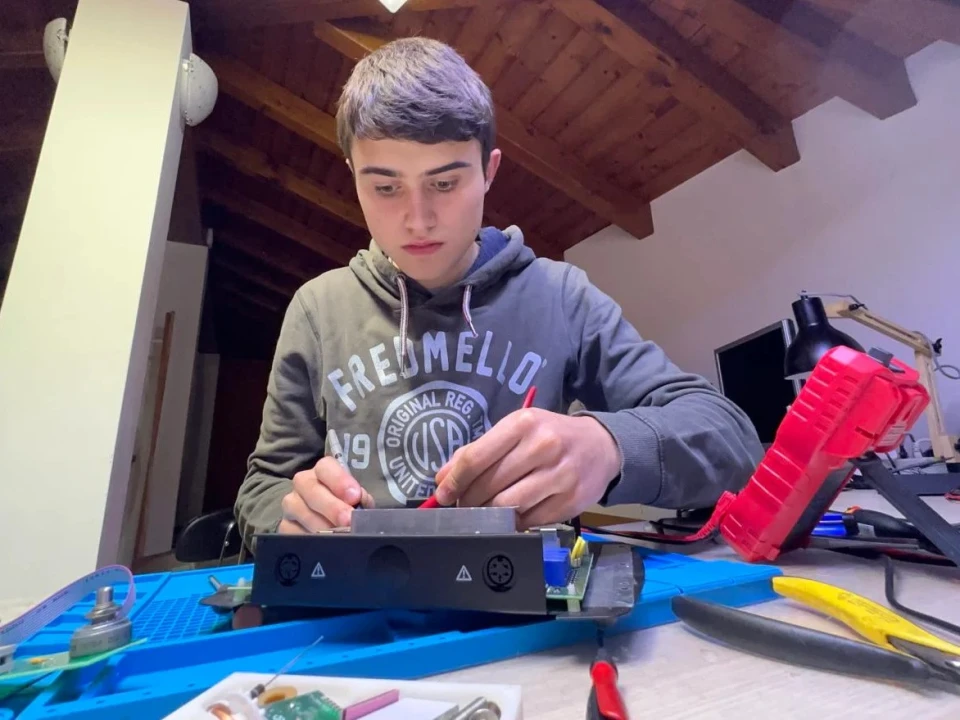Tommaso Caligari is a 17-year-old student from Novara, Italy. He will be honored in the Senate for an early detection project of his concerning Parkinson's disease. Which is called Parkinson Detector and studies through two cameras placed in front of each other the patient's gait. Analyzing any alterations in the upper limbs that are imperceptible to the human eye. In particular, the angle of swing between the shoulder and elbow.
Then an algorithm compares the data and issues the response. Caligari worked on his project in memory of his grandfather Sergio: "A doctor explained to me that there are precise indicators to make the diagnosis in the early stage, when the disease is still treatable. In particular, he explained that Parkinson's can be diagnosed by observing the reduction of upper limb sway and also an asymmetry that is not visible to the naked eye, but is there," he recalls.
"That phrase stuck in my mind. After a month I started thinking about the 'Parkinson Detector' device." And he presented the project at Eucys in Brussels. Caligari explains that artificial intelligence reads a person's movements without the need for markers. "Then data processing starts. The comparison the artificial intelligence is able to make with cases of sick people and healthy people," he explains. He verified the results with his father's help, "My father helped me. With him we went together to the Parkinson's Association in Arona. We asked to do the test on 11 patients. Then I replicated it on people who were not sick. The algorithm works. The beauty of this system is that it costs very little. It only takes a few minutes. It is noninvasive. It can help the doctor make the diagnosis."
"That phrase stuck in my mind. After a month I started thinking about the 'Parkinson Detector' device." And he presented the project at Eucys in Brussels. Caligari explains that artificial intelligence reads a person's movements without the need for markers. "Then data processing starts. The comparison the artificial intelligence is able to make with cases of sick people and healthy people," he explains. He verified the results with his father's help, "My father helped me. With him we went together to the Parkinson's Association in Arona. We asked to do the test on 11 patients. Then I replicated it on people who were not sick. The algorithm works. The beauty of this system is that it costs very little. It only takes a few minutes. It is noninvasive. It can help the doctor make the diagnosis."
The system took a year to develop. He developed it in his attic laboratory. Tommaso also made other inventions: "The first: a mini go-kart made from a stroller. Then flashlights out of Coca Cola caps. In elementary school, I reproduced the solar system from an LED light bulb." Then, at the technical institute in Novara, he built an artificial leaf that converts carbon dioxide into methane. And he developed a project that helps detect wrong-way vehicles on highways.



